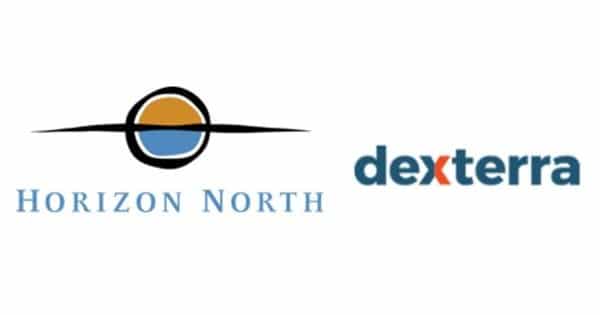
 It’s almost the end of rough waters for Dexterra Group (Dexterra Group Stock Quote, Chart, News, Analysts, Financials TSX:DXT), says Beacon Securities analyst Kirk Wilson, who in an update to clients on Monday said there should be smoother sailing coming up in 2022.
It’s almost the end of rough waters for Dexterra Group (Dexterra Group Stock Quote, Chart, News, Analysts, Financials TSX:DXT), says Beacon Securities analyst Kirk Wilson, who in an update to clients on Monday said there should be smoother sailing coming up in 2022.
Dexterra Group offers diversified products and services to Canadian companies in the facilities management, workforce accommodations, energy and forestry and modular building solutions. The company come about via the merger of Horizon North Logistics and Dexterra Integrated Facilities Management, a subsidiary of Fairfax Financial. Horizon North acquired all the outstanding shares of Dexterra in a share purchase agreement concluded in May, 2020, with Fairfax controlling a 49-per-cent interest in the new company and Horizon shareholders maintaining a 51-per-cent interest. The company went through a five-for-one share consolidation in July, 2020.
The company had an down-and-up 2020, with its share price going from $6.15 at the start of the year down to as low as $1.40 by late March. The stock then started climbing and finished the year at $6.49 per share.
With his update, Wilson kept his “Buy” rating and increased his target price from $7.00 to $8.50, implying at the time of publication a 12-month potential return of 31 per cent.
Wilson said despite a challenging environment due to COVID-related economic restrictions across Canada, Dexterra has benefitted from strong demand for its Modular Solutions (MS) products, while its Facilities Management (FM) and Workforce Accommodations, Forestry and Energy Services (WAFES) divisions still wait for better days ahead.
On its Modular Solutions segment, Wilson said the company should be wrapping up its Phase 1 affordable housing work for the City of Toronto this week when it delivers the second building. Phase 2, consisting of three buildings, and Wilson thinks Dexterra has “a high probability” of winning the contract, a potential $25 million in revenue on top of the $18 million from Phase 1.
“With its new modular facility in Ontario set to be in operation in late-Q2, DXT will have a better ability to meet the expanded need for affordable housing in Canada, which ties in with the $1-billion federal government Rapid Housing Initiative. Look for MS revenue jump from $40 million per quarter to $60 million per quarter late this year for Dexterra,” Wilson said.
On the other two divisions, Wilson said COVID restrictions are likely to keep them under duress, with Q1 EBITDA likely to drop to $15 million. In particular, Wilson pointed to the temporary shut down of the WAFES’ Crossroads Lodge in Kitimat and downturns in the aviation and retail sectors impacting the FM division.
“That said, the company is in a strong financial position with net debt expected to be under $100 million at YE’20. As DXT has a capital-light business (only $12 million capex in 2021), net debt should drop to ~$80 million this year while FCF should crest $32 million,” Wilson said.
Looking ahead, Wilson said the FM and WAFES segments should return to a post-COVID level of operations by 2022, while another year of strong free cash flow could point to a dividend increase (currently at a yield of about 4.5 per cent).
Wilson is calling for 2020 revenue and EBITDA of $480.5 million and $75.7 million, respectively, 2021 revenue and EBITDA of $773.4 million and $69.7 million, respectively, and 2022 revenue and EBITDA of $840.0 million and $77.3 million, respectively. His $8.00 target stems from a 7.5x EV/EBITDA multiple.
For its last reporting period, its third quarter 2020 delivered on November 10, 2020, Dexterra registered revenue of $176.9 million compared to $76.2 million a year earlier and adjusted EBITDA of $27.1 million compared to $5.2 million a year earlier. Earnings per diluted share went from $0.10 for Q3 2019 to $0.24 per share and the company’s net debt fell from $138 million to $109 million by September 30, 2020, and management targeted the debt to be under $100 million by the year’s end.
Dexterra said it achieved cost synergies from the merger saving the company $22 million annually for 2021 onward, with further cost synergies potentially realized as future integration and cross-line-of-business sales opportunities come to light.
“The Corporation’s financial position and liquidity are strong. The Corporation has generated Free Cash Flow of $34.6 million in the first nine months of 2020. In future quarters, principal sources of liquidity include generated Free Cash Flow and proceeds from the disposal of idle or underutilized assets across its operating segments,” Dexterra said in its third quarter press release.
The company announced a new President of its NRB MS division, Dawn Nigro, in late November, with Dexterra planning on building a Modular Solutions plant in Ontario “to increase capacity and address the surging demand for rapid housing,” the company said in the Q3 2020 release.
Leave a Reply
You must be logged in to post a comment.




 Share
Share Tweet
Tweet Share
Share




Comment